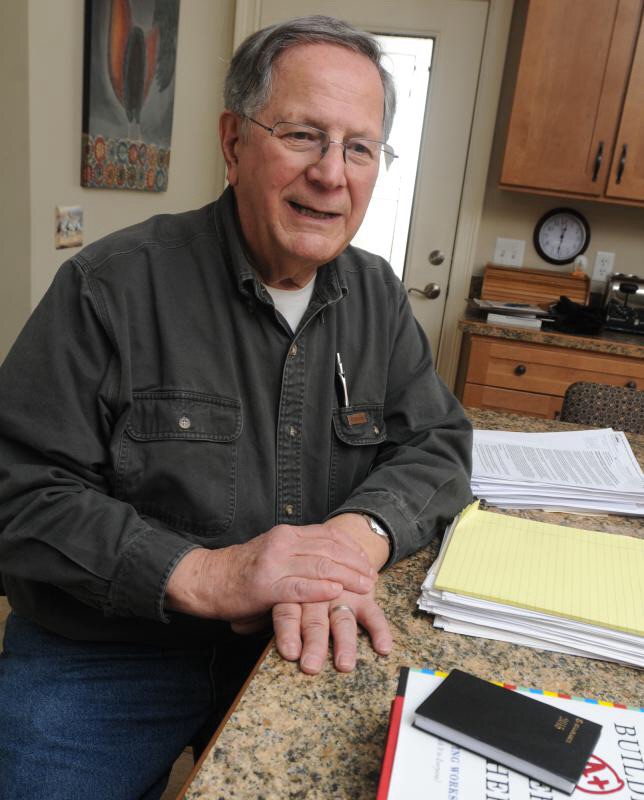By DAN CROWLEY
Staff Writer
Daily Hampshire Gazette
NORTHAMPTON — A Southampton man’s yearlong public records battle with state education officials has moved to the courts, where he hopes to learn which Massachusetts schools participated in an international student assessment study.
The complaint filed Tuesday in Hampshire Superior Court by James Palermo seeks a court order to compel the state Department of Elementary and Secondary Education to release the names of the Massachusetts schools and districts that participated in the 2012 Program for International Student Assessment (PISA) testing.
“I’m glad it’s going to go before a court. I think this is so important,” said Palermo.
State education officials have declined to release the information to Palermo despite twice being ordered to do so by state Supervisor of Records Shawn A. Williams, who earlier ruled on two appeals in the case.
Under the state’s Public Records Law, the superior courts and state Supreme Judicial Court have jurisdiction to order a public records custodian to comply with an administrative order to release information, in this case, from Williams.
The law states that in such cases, there is a presumption that the record sought is public and that the burden is on the record custodian to prove which exemption applies.
Palermo’s complaint names the state Department of Elementary and Secondary Education, Commissioner Mitchell D. Chester and Deputy Commissioner Jeffrey R. Wulfson as defendants. His case was taken up by Northampton attorneys Thomas A. Miranda and Justin P. Goldberg of Miranda Law Offices after the Gazette reported on the case in February.
“You need the expertise,” Palermo said of his counsel.
State education officials yesterday declined to comment on the court complaint.
Palermo, 74, has been trying to learn the names of the schools and districts that participated in the PISA study since April 2014, when he says he verbally requested information from the state Department of Elementary and Secondary Education.
He sought the information as part of research he is conducting on charter schools and after DESE issued a press release announcing that Massachusetts students exceeded the national average and scored among the top performing education systems in the world in reading, mathematics and science literacy.
The December 2013 announcement stated that Massachusetts students performed best in reading literacy, trailing only students from Shanghai, Hong Kong and Singapore. In mathematics and literacy, the commonwealth’s students ranked 10th or better among 65 participating countries and education systems.
Palermo wanted to know more about the 49 Massachusetts public schools that participated in the test which, as he put it in correspondence with Williams last year, serves as an “instrument giving impetus to initiatives for education reform.”
“Because of my deep concerns about public education and a growing skepticism regarding the data upon which decisions relating to public schools are made by elected representatives and various government departments, I have attempted to evaluate the data upon which public officials base their actions,” Palermo wrote in a June 16, 2014, letter of appeal to Williams.
In the same letter, he wrote that the commonwealth, “has an obligation to provide its citizens with the data necessary in order to evaluate the validity of the assumptions on which the state formulates its policies regarding public education.”
State education officials have refused to give Palermo the information, stating that the U.S. Department of Education’s National Center for Education Statistics, which coordinates the U.S. participation in PISA, does not permit them to release the names of schools and districts. They later cited the statutory exemption in the state’s Public Records Law and a confidentiality section of the federal Education Science Reform Act of 2002 that states, in part, “The Director shall ensure that all individually identifiable information about students, their academic achievements, their families, and information with respect to individual schools shall remain confidential …”
Palermo said the claims of confidentiality in the federal law are questionable given that he was readily able to find a detailed 164-page report on Natick High School’s participation in past PISA testing with results online. The report had been published by the secretary general of the Organization for Economic Cooperation and Development, which administers PISA internationally.
“I don’t care about the students’ identities at all,” Palermo said. “I want the names of the schools and school districts.”
In his complaint, Palermo asks the court to rule that the information he seeks is a public record and that the state DESE has no right to withhold such records. He also seeks an order declaring that the Education Sciences Reform Act does not exempt the release of the records, as well as any other relief the court deems just.
Dan Crowley can be reached at [email protected].


